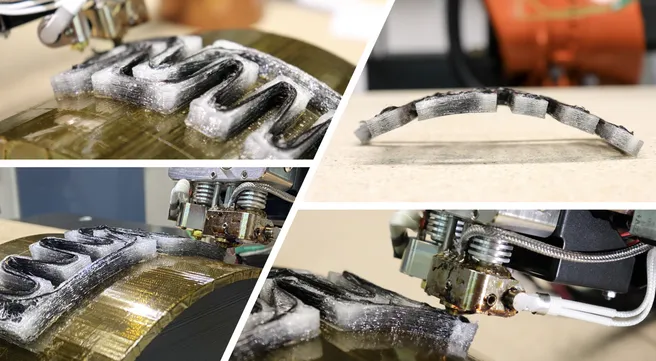Additive manufacturing provides increased flexibility for manufacturing parts with complex geometries. However, manufacturing these geometries with conventional planar 3D printing (also known as 2.5D printing) can cause problems, such as reduction in strength and stiffness in some directions due to its anisotropic nature. In order to overcome such limitations, research on nonplanar 3D printing has been carried out at the Chair of Carbon Composites (LCC). With the use of a 6-DOF robotic arm and a composite fiber co-extrusion print head, LCC is able to create nonplanar 3D printed parts reinforced with continuous fiber. This opens up new possibilities in manufacturing complex structures with curved fiber reinforcement. Among the various applications, LCC plans to further develop this technology to fabricate lower-limb exoskeletons with tailored stiffness at passive joints customized for individual stroke patients. More information about the application of the technology can be found here.
